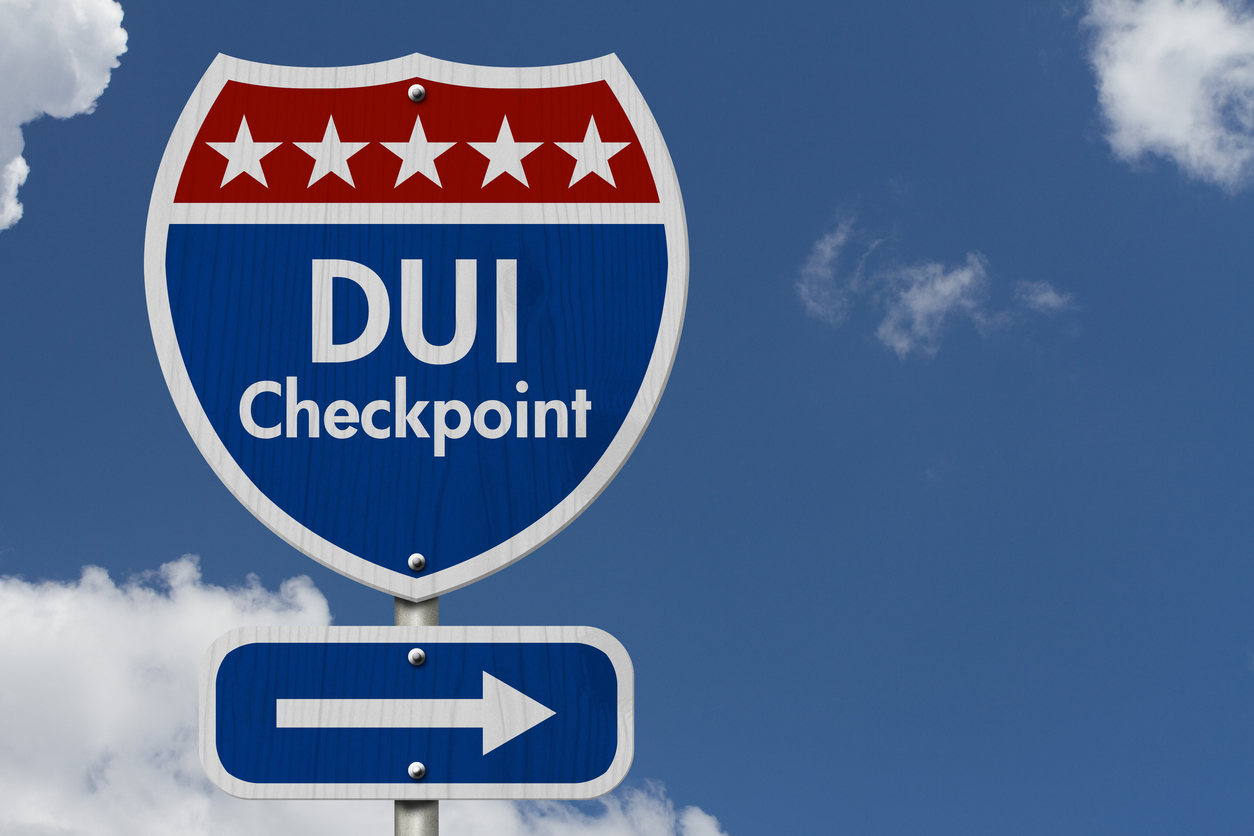
Driving under the influence (DUI) is a serious offense in Maryland, with stringent laws designed to keep the roads safe. One of the methods law enforcement uses to catch impaired drivers is DUI checkpoints. These checkpoints are set up at various locations and times, often during weekends or holidays when there’s an expected increase in traffic and potential for impaired driving. Understanding your rights and what to expect during a DUI checkpoint can be critical in ensuring that your legal rights are protected. Alpert Schreyer Criminal Defense Attorneys is here to guide you through the complexities of DUI laws and to provide you with the support you need if you find yourself facing charges.
The Nature of DUI Checkpoints in Maryland
DUI checkpoints, also known as sobriety checkpoints, are strategically placed roadblocks where police officers stop vehicles to check for signs of intoxication and impairment. Unlike routine traffic stops, DUI checkpoints are not initiated because of any specific driver’s behavior. Instead, all vehicles passing through the checkpoint are stopped according to a pre-determined formula, such as every third car. This systematic approach aims to ensure fairness and reduce claims of discriminatory or arbitrary enforcement.
In Maryland, DUI checkpoints must adhere to specific guidelines to be considered lawful. These guidelines are established to balance public safety with individual rights. For instance, the location and timing of the checkpoint must be chosen based on data, such as areas with a high incidence of DUI arrests or accidents. Additionally, the operation of the checkpoint should be publicly announced in advance, although the exact locations and times may not be disclosed. This advance notice serves both as a deterrent and as a measure to maintain transparency in law enforcement practices.
Your Rights at a DUI Checkpoint
When you approach a DUI checkpoint, it’s natural to feel apprehensive, even if you haven’t been drinking. Knowing your rights can help you navigate this situation with confidence. First and foremost, you have the right to remain silent. While you must provide basic identification and vehicle documentation upon request, you are not obligated to answer questions about where you’ve been or whether you’ve been drinking. Simply informing the officer that you choose to exercise your right to remain silent is sufficient.
You also have the right to refuse certain tests and searches. For example, you can refuse to perform field sobriety tests, which are designed to assess your balance, coordination, and attention. These tests are highly subjective and can be influenced by a range of factors unrelated to alcohol consumption, such as fatigue or nervousness. Similarly, you can refuse a preliminary breath test (PBT) at the scene. However, it’s important to understand that refusing a breathalyzer test after an arrest can result in automatic penalties under Maryland’s implied consent law. This law states that by driving on Maryland roads, you have implicitly agreed to submit to chemical testing if lawfully arrested for a DUI.
Moreover, if the officers wish to search your vehicle without your consent, they need to have probable cause or a warrant. You can calmly state that you do not consent to a search, although it’s advisable to remain polite and non-confrontational throughout the encounter. The key is to be aware of your rights and to assert them respectfully, ensuring that the officers are conducting themselves within the bounds of the law.
What to Expect During a DUI Checkpoint
At a DUI checkpoint, officers will typically follow a set procedure designed to efficiently and fairly screen drivers for impairment. As you approach the checkpoint, you will notice signs, cones, and flashing lights directing traffic. You will then be instructed to stop your vehicle and may be asked to roll down your window. The officer will likely ask for your driver’s license, registration, and proof of insurance.
During this initial interaction, the officer will observe you for any signs of impairment, such as the smell of alcohol, slurred speech, or bloodshot eyes. If the officer suspects that you may be impaired, they may ask you to step out of your vehicle for further evaluation. This could involve field sobriety tests or a preliminary breath test. Remember, you have the right to decline these tests.
If the officer believes they have probable cause to arrest you for DUI, you will be taken into custody, and you will be asked to take a chemical test, such as a breathalyzer, blood test, or urine test. Refusing this test can lead to an automatic suspension of your driver’s license and other penalties, even if you are not ultimately convicted of a DUI. It’s crucial to weigh your options carefully and understand the potential consequences of refusing a test at this stage.
Legal Challenges and Defenses
If you are arrested at a DUI checkpoint, there are several potential defenses that can be explored with the assistance of a knowledgeable attorney. One common defense is challenging the legality of the checkpoint itself. DUI checkpoints must adhere to specific procedural guidelines, and any deviation from these guidelines can render the checkpoint invalid. For instance, if the checkpoint was set up without proper authorization, if the selection of vehicles was not done according to a neutral formula, or if the checkpoint was not adequately publicized in advance, your attorney may be able to argue that the checkpoint was unlawful.
The conduct of the officers during the checkpoint can also be scrutinized. If the officers did not have reasonable suspicion to detain you or probable cause to arrest you, any evidence obtained as a result of the unlawful stop or arrest may be suppressed. This could significantly weaken the prosecution’s case against you.
Another avenue of defense could involve challenging the accuracy or reliability of the chemical tests administered. Factors such as improper calibration of the testing device, incorrect administration of the test, or contamination of the sample can all affect the validity of the results. An experienced attorney can thoroughly investigate these aspects and identify any weaknesses in the prosecution’s evidence.
The Importance of Legal Representation
Facing a DUI charge can be overwhelming, especially when it stems from a DUI checkpoint. The legal system is complex, and the stakes are high, with potential consequences including fines, license suspension, and even jail time. Having a seasoned attorney by your side can make a significant difference in the outcome of your case.
Alpert Schreyer Criminal Defense Attorneys we understand the intricacies of Maryland’s DUI laws and the procedures surrounding DUI checkpoints. Our team is committed to protecting your rights and providing you with a robust defense. We will meticulously review every detail of your case, from the legality of the checkpoint to the conduct of the officers and the validity of the evidence. Our goal is to ensure that you receive fair treatment and that your rights are upheld throughout the legal process.
A DUI charge can have far-reaching consequences that extend beyond immediate penalties. It can affect your employment, your personal life, and your future opportunities. That’s why it’s crucial to take proactive steps to protect yourself and to seek the guidance of a dedicated legal team.
Protecting Your Rights
Alpert Schreyer Criminal Defense Attorneys is here to provide you with the support and representation you need. We are committed to fighting for your rights and to helping you achieve the best possible outcome in your case. Whether you are dealing with a first-time DUI charge or a more complex situation, we have the knowledge and experience to guide you through every step of the process.
If you have been stopped at a DUI checkpoint or are facing DUI charges in Maryland, don’t wait to seek help. Contact Alpert Schreyer Criminal Defense Attorneys today to schedule a consultation. Let us be your advocate and partner in navigating this challenging time. Your future is too important to leave to chance, and we are here to help you protect it. Reach out to us now and take the first step towards securing your rights and your future.
Alpert Schreyer Criminal Defense Attorneys – Lanham Office
4600 Forbes Blvd Ste 201 Lanham, MD 20706
(301) 262-7005
Available 24/7
Alpert Schreyer Criminal Defense Attorneys – Frederick Office
25 E Patrick St #200 Frederick, MD 21701
(301) 381-1993
Available 24/7
Alpert Schreyer Criminal Defense Attorneys – Rockville Office
11140 Rockville Pike 550-J Rockville, MD 20852
(301) 364-3195
Available 24/7
